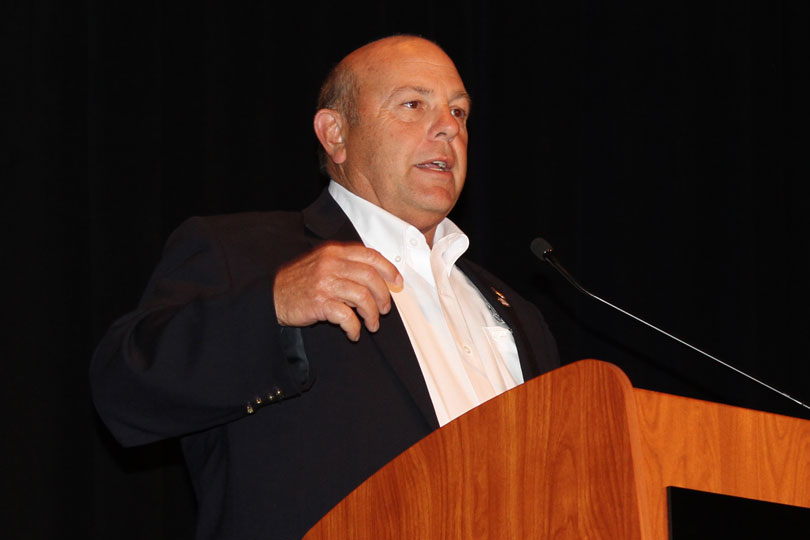By Justin Walker
Communications Specialist
American Farm Bureau Federation (AFBF) President Zippy Duvall spoke before the U.S. Senate Committee on Environment and Public Works regarding the impact of federal environmental regulations and policies on American farming and ranching communities.
After visiting with farmers and ranchers from across the country, Duvall informed the committee of two concerns existing within the communities: the lack of an adequate, legal supply of farm workers and the burden of complying with a web of often overlapping and conflicting federal regulations.
“I have met with farmers and ranchers who are not sure if they should encourage their children to remain on the farm, because they are not sure the farm will sustain another generation if these problems continue to get worse,” Duvall said.
Duvall spoke about several topics regarding policies and regulations, including the Comprehensive Environmental Response, Compensation and Liability Act (CERCLA) and Emergency Planning and Community Right-to-Know Act (EPCRA), regulatory reform, duplicative regulatory burdens, Waters of the United States (WOTUS), the Endangered Species Act (ESA) and the privacy and use of unmanned aircraft systems (UAS).
One of Duvall’s main points was the 2017 D.C. Circuit Court of Appeals decision to vacate the Environmental Protection Agency’s exemption of agricultural operations from CERCLA reporting and small operations from EPCRA reporting requirements.
“Not only does this court decision have the potential to require nearly 200,000 farms and ranches to report their low-level emissions, but will also likely put our nation’s environmental and public health at risk,” Duvall said.
Duvall noted the reports are taken by the National Response Center (NRC) and operated by the Coast Guard. The inflow of reports received by NRC due to this court decision could prevent the Coast Guard from responding to actual emergencies regarding hazardous wastes, defeating the purpose of CERCLA.
“Emergency responders do not see value in the reporting from farms, and the influx of agricultural reports will hurt emergency response coordination,” Duvall said.
He pointed out the National Association of SARA Title III Program officials did not see the value of reports to local emergency planning committees or first responders and that the reports “are generally ignored because they do not relate to any particular event.” Duvall pushed for Congress to reverse this decision.
Duvall also spoke at length about regulatory reform, stating Americans wanted a process that is open, transparent, grounded on facts and respectful of our system of federalism. He discussed the extent to which federal laws and regulations impact farms and ranches across the country.
“While farm bill programs such as crop insurance and conservation programs are most readily recognizable as affecting agriculture, producers confront numerous other regulatory challenges,” Duvall said.
Lending and credit requirements, interpretations of the tax code, health care provisions, energy policy, labor and immigration laws and environmental statues are just a few of the challenges Duvall mentioned before the committee, but stressed this was not an exhaustive list.
He noted these policies didn’t just impact farmers and ranchers from a business stand point.
“Unlike nearly any other economic enterprise, a farm is not simply a business. It’s often a family’s home,” he said.
Duvall said reforming the current process would ensure stakeholders a fair outcome, further congressional intent, safeguard our environment, take into account modern social media, respect the role of the states and reinforce public confidence in the integrity of the system.
“We believe a fair, transparent, open and updated regulatory process will benefit not just farmers and ranchers,” Duvall said. “It will reinvigorate public respect for the important and critical role regulations must and do play while benefiting taxpayers, the environment, small business and people in all walks of life.”
Duvall expressed appreciation to the committee for listening to farmers’ and ranchers’ concerns and stressed that AFBF will continue to work for improvements in these communities.
“The need for continued oversight and reform of the nation’s environmental

